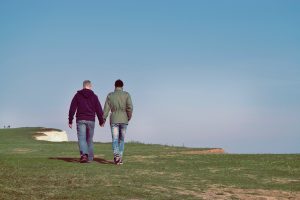The Power of Just Being Ourselves
Sometimes to make a difference, being ourselves can do good.
I recently went through a long period of dealing with impostor syndrome. You know, that feeling of ‘charade’ that makes you question your successes and achievements. Well, this state of mind quickly took hold during a diversity and inclusion training as part of the Fellowship in Inclusion and Philanthropy of AFP (Association of Fundraising Professionals).
I am actually a part of what we categorize as “diversity”. I meet two criteria: disability and sexual orientation. These criteria make no difference in my daily life. These criteria do not bother me, do not limit me in my career path and do not cause me any trouble / misfortune / prejudice / etc.
When I met the other Fellowship participants at the above-mentioned training, the shock was brutal. At a glance I understood why the others were selected to be part of this Fellowship. There were several women, a wheelchair user and several members of different ethnic and cultural communities. When I look in a mirror, I see a typical (and privileged) white man. That day I was sitting among people who undoubtedly had to work twice as hard as I did to get to where they are.
While experiencing this impostor syndrome in the strongest way possible during this training, I witnessed a very tough discussion between the facilitator and a participant on racial issues in Toronto – a topic very far away from my reality. I suddenly felt that this training was clearly not meant for me.
However, looking back, my understanding is now more nuanced and I believe that the training was in fact very much meant for me – to challenge my own perceptions of diversity.
This training gave me the opportunity to talk to both participants and others in my network, who all confirmed that I have a legitimate voice in the conversation about inclusion. In fact, everybody has a voice in this conversation.
I may not be an activist, but I am who I am 24/7. The simple fact of living in society, of living my life without embarrassment and without restraint, with my husband and my son – all this contributes to a slow but methodical deconstruction of the myths about people with disabilities and the LGBTQ2+ community.
Having said that – I still find myself asking if, considering the systemic barriers to inclusion, I have a duty to do more? Does staying in my comfort zone make me an obstacle rather than a diversity ally?
I remain convinced that sometimes being ourselves is the best force for changing perceptions. But it will never be enough.
Daniel H. Lanteigne is the Executive Director of the REA Foundation and Fellow of the Inclusion and Philanthropy Fellowship Program of AFP Canada (2018-2019). linkedin.com/in/dhlanteigne/







